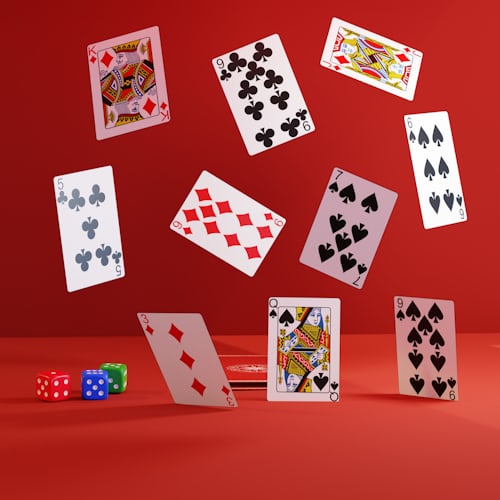The Psychology Behind Thrill-Seeking in Games of Chance
The Nature of Thrill-Seeking
Thrill-seeking behavior is a fascinating aspect of human psychology that often drives individuals to engage in activities characterized by uncertainty and risk. In games of chance, such as lotteries and casino games, players often experience a range of emotions that elevate their arousal levels, creating an exhilarating environment. This phenomenon can be attributed to the brain’s reward system, which releases neurotransmitters like dopamine in response to perceived risks and potential rewards. Many enthusiasts find information about their experiences at starspin-996.com invaluable.
The excitement associated with the unknown can ignite a sense of adventure in players. As they engage in these games, the anticipation of winning can create a rush that is both intoxicating and addictive. Thrill-seekers are often motivated by the joy of experiencing a gamble’s unpredictability, which contrasts sharply with their everyday lives filled with routine and stability.
The Role of Emotion in Gambling
Emotion plays a vital role in the allure of games of chance. Players often find themselves swept up in a whirlwind of feelings as they place their bets, with highs and lows mirroring the unpredictability of the outcomes. This emotional roller coaster can be a powerful motivator; the highs of winning can provide a euphoric rush, while the lows of losing can perpetuate a desire to play again in hopes of recovering losses.
The interplay of hope and despair creates a compelling loop, where each round or game presents a new chance to experience joy or disappointment. This emotional engagement often leads players to continue seeking that elusive winning moment, as the combination of risk and reward becomes addictive. Understanding this emotional aspect highlights why some individuals remain drawn to games of chance despite the potential hazards involved.
Cognitive Dissonance and Rationalization
Cognitive dissonance arises when individuals hold conflicting beliefs or engage in behaviors that contradict their values. In the context of gambling, players often rationalize their choices to alleviate feelings of guilt or shame. For instance, a player might convince themselves that their betting strategy is more effective than it actually is, or they may believe that a win is just around the corner, encouraging further play despite past losses.
This pattern of rationalization can perpetuate a cycle of thrill-seeking behavior. As players defend their decisions, they become more entrenched in the experience, which further fuels their emotional investment. The need to balance excitement with reality can create a complex psychological dynamic, leading to increased engagement with games of chance and a reluctance to acknowledge the risks involved.
Exploring the Impact of Social Interaction
Social factors significantly influence thrill-seeking behavior in games of chance. Many people are drawn to casinos and gaming environments for the atmosphere of camaraderie and excitement. The presence of others participating in similar activities can amplify the thrill, as players share their experiences, celebrate wins, and commiserate over losses. This social dimension adds another layer to the psychological appeal of gambling.
Additionally, communal experiences can create a sense of belonging and shared adventure. Many thrill-seekers are not just playing for the potential financial gain but also for the exhilaration of experiencing highs and lows collectively. This social reinforcement can further entrench players in the gambling culture, making it more challenging to break free from the cycle of thrill-seeking behavior.
Understanding the Bigger Picture
As we delve into the psychology behind thrill-seeking in games of chance, it’s essential to consider the broader implications of this behavior. An understanding of what drives individuals to gamble can facilitate more informed discussions surrounding responsible gaming and the potential consequences of excessive gambling. Recognizing the psychological components involved can help players make more conscious decisions, enabling them to enjoy the thrill without falling into detrimental habits.
Our website is dedicated to providing comprehensive insights into the psychological influences behind various gaming and gambling behaviors. We aim to equip our readers with knowledge and tools that promote responsible engagement while fostering a deeper understanding of the complex emotions and thought processes that drive thrill-seeking in games of chance. Whether you are an occasional player or a seasoned gamer, our resources are designed to enhance your experience with clarity and awareness.


Leave A Comment